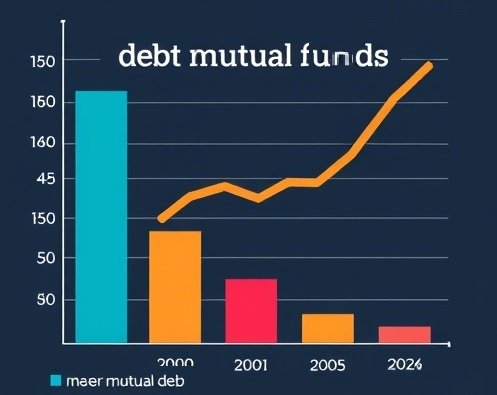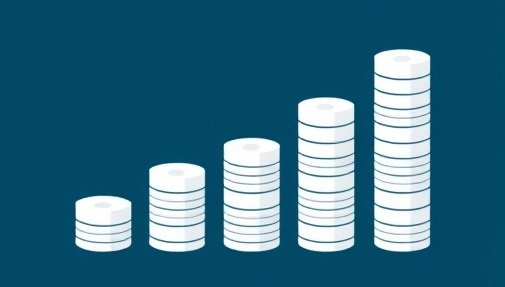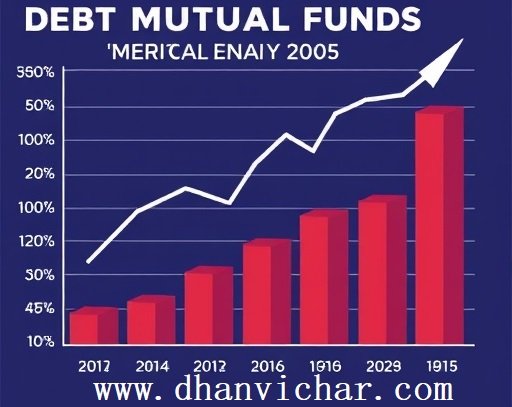Debt mutual funds are important for many investors. In fact, they are especially popular with people who want stability and regular income. In this guide, we will explain what debt mutual funds are, their types, benefits, risks, and how to invest in them.
What Are Debt Mutual Funds?

These funds collect money from many investors. Specifically, they invest in safe things like bonds and government securities. In other words, these funds aim to provide steady income through interest payments. This makes them a good choice for people who want to protect their money while earning returns.
Types of Debt Funds
There are several types of debt mutual funds. Each type serves different needs. Here’s a simple list:
| Type | Description |
|---|---|
| Liquid Funds | Invest in short-term, easy-to-sell securities. This is good for parking money temporarily. |
| Short-Term Debt Funds | Invest in securities that last one to three years. Thus, they balance risk and return well. |
| Long-Term Debt Funds | Focus on securities that last more than three years. As a result, they offer higher potential returns but with more risk. |
| Dynamic Bond Funds | Managed to adjust to changing interest rates. Consequently, they help maximize returns while managing risks. |
| Gilt Funds | Invest only in government securities. Therefore, these are low-risk options for safety. |
Understanding these types helps you choose the right one for your needs.
Benefits of Debt Funds

Debt mutual funds have many advantages. For instance:
- Stable Returns: They provide predictable income through regular interest payments.
- Lower Risk: They are generally safer than equity funds. In fact, they protect against market ups and downs.
- Diversification: Your money is spread across different investments, reducing overall risk. This approach helps minimize the impact of any single investment.
- Liquidity: You can easily buy and sell units. Moreover, many funds offer quick access to your money.
- Tax Benefits: Long-term gains are taxed at lower rates, saving you money. Thus, this makes them more appealing.
These benefits make debt mutual funds a smart choice.
Risks of Debt Mutual Funds
these funds also come with risks. Here are some to consider:
- Interest Rate Risk: If interest rates rise, the value of your investments may fall. Consequently, this can affect your returns.
- Credit Risk: Specifically, there’s a chance the issuer may not pay back. This is higher with corporate bonds.
- Liquidity Risk: Some investments might be hard to sell quickly. In addition, this can impact your ability to access funds.
- Inflation Risk: Rising prices can reduce your returns. Thus, it is essential to keep inflation in mind.
Knowing these risks helps you make better choices.
How to Invest in Debt Mutual Funds
Investing in mutual funds is simple. Just follow these steps:

- Assess Your Goals: Decide why you want to invest and how much risk you can take.
- Choose a Fund: Pick a fund that fits your needs. In particular, look at its duration and past performance.
- Complete KYC: Fill out the Know Your Customer forms. This involves showing ID and proof of address.
- Select Payment Mode: Choose to invest a lump sum or use a Systematic Investment Plan (SIP) for regular payments.
- Monitor Your Investments: Keep track of how your funds are doing. Furthermore, most fund companies offer online tracking.
FAQs Mutual Funds
1. What are debt mutual funds?
Debt mutual funds are groups of money from many people. In addition, they invest in safe things like bonds and government securities. Ultimately, these funds aim to give you regular income.
2. How do debt mutual funds work?
These funds collect money and invest it in fixed-income securities. Therefore, you earn money from the interest on these investments. This helps you grow your savings steadily.
3. What are the types of debt mutual funds?
There are several types of debt mutual funds, including:
- Liquid Funds: For short-term investments and easy access to money.
- Short-Term Debt Funds: For investments of one to three years.
- Long-Term Debt Funds: For investments longer than three years.
- Dynamic Bond Funds: For flexible investing based on market changes.
- Gilt Funds: For investing only in government securities.
4. What are the benefits of debt mutual funds?
Debt mutual funds offer several benefits:
- Stable Returns: You get regular interest payments.
- Lower Risk: They are safer than stocks.
- Diversification: Your money is spread across different investments.
- Liquidity: You can buy or sell easily.
- Tax Benefits: Long-term gains have lower tax rates.
5. What risks do debt mutual funds have?
Debt mutual funds also have risks:
- Interest Rate Risk: If interest rates go up, the value of your investments may go down.
- Credit Risk: The company may fail to pay back its loans.
- Liquidity Risk: Some investments might be hard to sell quickly.
- Inflation Risk: Rising prices can reduce your returns.
6. Are debt mutual funds good for everyone?
Debt mutual funds are great for people who want safe and steady returns. In summary, they work well for conservative investors or anyone saving for short- or long-term goals. Always consider your financial goals before investing.
Conclusion
Debt-mutual funds are valuable for those seeking stability and lower risk. Overall, they offer a mix of fixed-income securities and benefits like liquidity and tax advantages. By understanding their types, benefits, and risks, you can make smart investment decisions. As you start your investment journey, remember to stay informed and regularly check your investments for the best results with debt mutual funds.
You can use this external link for information from the Association of Mutual Funds in India (AMFI):
